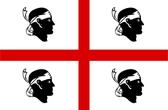
Call 0330 880 3600 Calls may be monitored or recorded. Opening Times.
- TRAVEL INSURANCE
- COVID-19 COVER
- More Options
- Help & Advice
- Existing Customers

Call 0330 880 3600 Calls may be monitored or recorded. Opening Times.

Need help?
UK Customer Services0330 880 3600*
Open Monday to Friday 9:00am to 6pm, Saturday 8:30am to 4pm and closed Sundays.
*Calls are recorded for training and quality purposes.

Official name: Autonomous Region of Sardinia (Italy)
Capital city: Cagliari
Languages spoken: Italian, Sardinian, Catalan, Gallurese, Sassarese
Population: Around 1.6 million
Currency: Euro (EUR)
Time zone: GMT+1 (GMT+2 in summer)
Driving side: Right
Climate: Mediterranean, with hot dry summers and mild wet winters
Sardinia, the second-largest island in the Mediterranean, is famed for its stunning coastline, crystal-clear waters, and rugged interior. It offers a mix of pristine beaches, ancient archaeological sites, and charming towns. Known for its unique culture, cuisine, and language, Sardinia is a destination that feels distinct from mainland Italy.
Located west of mainland Italy and south of Corsica, Sardinia covers 24,100 square kilometres. The island is mountainous, with its highest peak being Punta La Marmora at 1,834 metres in the Gennargentu range. Its coastline stretches for nearly 2,000 km, dotted with bays, cliffs, and beaches.
Sardinia is served by three main airports: Cagliari Elmas, Olbia Costa Smeralda, and Alghero Fertilia. Ferries connect Sardinia with mainland Italy, Corsica, and Spain. Visitors flock to Costa Smeralda for luxury resorts, while Alghero, Bosa, and Oristano offer culture and charm. Inland highlights include Su Nuraxi, a UNESCO-listed nuraghe site, and the wild landscapes of Barbagia.
As part of Italy, Sardinia follows Schengen Area rules. UK nationals can enter visa-free for up to 90 days in any 180-day period. Passports must be valid for at least three months beyond the planned stay. The nearest British consular services are available through the British Embassy in Rome or consulates across Italy.
The euro (EUR) is Sardinia’s official currency. Credit cards are widely accepted, and ATMs are available in most towns. Costs vary: the Costa Smeralda is among Europe’s most expensive holiday areas, while rural Sardinia offers more affordable stays.
Healthcare in Sardinia is generally good, with hospitals in major towns and cities such as Cagliari, Sassari, and Olbia. EU and UK travellers can use reciprocal healthcare agreements for basic treatment, but comprehensive travel insurance is recommended to cover emergencies and private care. Tap water is usually safe to drink, though bottled water is preferred in some rural areas.